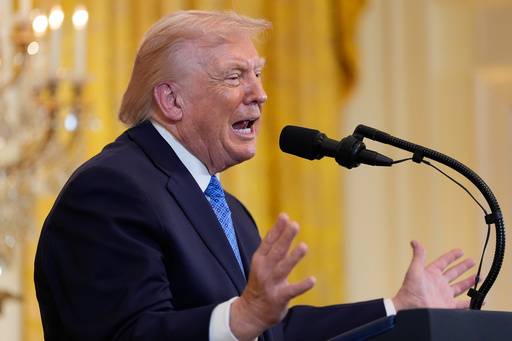The American backlash against modernity

President Donald Trump’s political comeback in the 2024 United States presidential election, though not a landslide, is nothing short of phenomenal. He secured victories in all the swing states, earning a decisive majority of electoral votes and the nationwide popular vote. Additionally, the Republican Party, now indelibly stamped with his personal brand, gained control of both houses of Congress.
Did he achieve this by sheer force of personality, bending American public opinion to align with his often outlandish views? Or did he tap into a deep vein of resentment, fear, and disillusionment, skillfully exploiting it for his own political ends?
Pollsters have sought answers. From Jan. 2 to 10, a poll conducted by the New York Times and Ipsos surveyed 2,128 adults. The results were compelling enough for the Times to headline a lead article: “Support for Trump’s Policies Exceeds Support for Trump.” The analysis reveals an America increasingly turning inward, with 55 percent of respondents agreeing that all illegal immigrants should be deported and 60 percent stating that the government neglects domestic issues while entangling itself in costly foreign wars. “For a political figure so divisive—Americans view him (Trump) more negatively than any other president about to take office in the last 70 years—the level of support for his ideas is striking,” the report observed.
I would go further: this is not merely a nation turning inward. It is a nation engaged in a profound backlash against modernity itself, as evidenced by its responses to social issues. The survey reveals dwindling support for programs aimed at increasing racial diversity in schools and government agencies, with 48 percent favoring their termination and only 47 percent supporting their continuation. Meanwhile, a substantial majority expressed sympathy for efforts to strictly regulate how doctors treat children grappling with gender identity.
For a country that takes pride in delivering the world’s most cutting-edge technologies, it may seem paradoxical to describe the United States as leading a backlash against modernity. But this contradiction only arises if we conflate modernity with technological advancements like artificial intelligence, satellites, and self-driving cars. Modernity is more than just tools and inventions.
Modernity is also a form of society, a type of social organization underpinned by a distinct set of values. It represents a way of structuring human affairs that departs radically from traditional norms. As a form of society, modernity prioritizes an individual’s role and function over their inherited rank in a preordained hierarchy. In such a society, people are valued for what they do, rather than for who they are at birth. At least in principle, modernity dismantles barriers of race, ethnicity, religion, gender, and social rank, replacing them with the ideals of equality and merit.
Historically, modernity unfolds unevenly across the globe. The United States, given its origins, seemed uniquely positioned to champion the social changes that accelerate its progression. It began as a community of immigrants fleeing persecution, bound together by the shared challenges of surviving and thriving in an untamed frontier. These settlers built a new world, blending old traditions with innovative rules suited to their circumstances.
Over time, through trial and error, they developed a framework of fundamental freedoms and rights synonymous with modernity: freedom of religion, the right to elect and change leaders, equal access to justice, universal and compulsory education, and the freedom to choose one’s occupation and participate in the market economy.
The trajectory of modernity points toward a world society indifferent to distinctions of race, ethnicity, gender, and nationality. The collaborative efforts of people from diverse backgrounds have led to humanity’s greatest achievements in science, technology, education, and the arts.
Globalization, for all its flaws, has also lifted millions out of poverty in countries like China, showing both its potential and its challenges.
And yet, ironically, America’s response to the evolution of a global society has been to build walls—literal and figurative—rather than to address and correct globalization’s excesses and deficiencies. Meanwhile, China, despite its own exceptions and limitations, has embraced the unfolding dynamics of a globalized world.
This inward turn and rejection of modernity’s ideals reflect a deeper crisis in the United States, one that risks unraveling the very principles that made it a model of progress in the first place.
—————-
public.lives@gmail.com





















